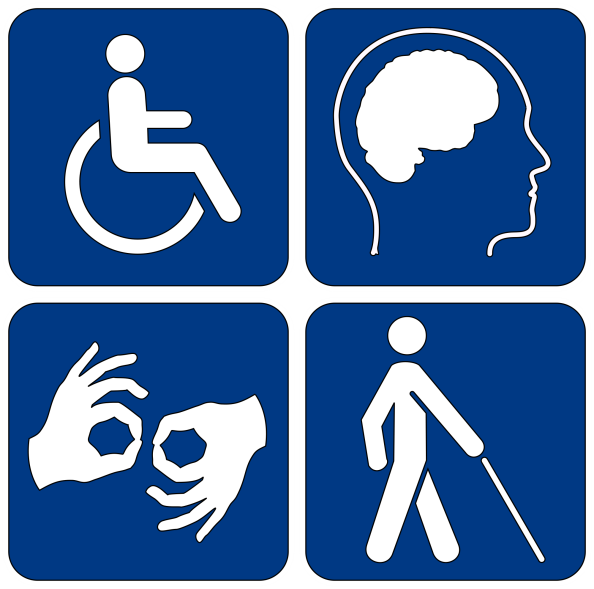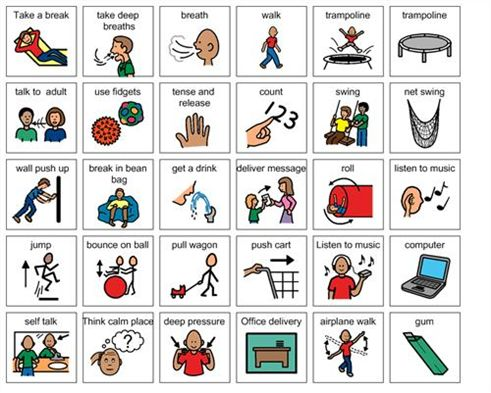Developing an Inclusive Library Policy
Developing an Inclusive Library Policy
Topic 4: Developing an Inclusive Library Policy
Library policies provide the guiding force behind the decisions and actions of your library, and these policies have a major impact on the community's feelings toward and behaviors in your library.
Reviewing your current policies with an understanding of what makes an inclusive policy can help determine where gaps in service and support are. Revising or rewriting your existing library policies is a necessary component in making your library more inclusive for all. You can learn more about creating or updating library policies in the Library Policies and Procedures topic in Module 3 of Project ENABLE: Creating an Accessible Library.
The Americans with Disabilities Act Assembly, a representative group administered by the Association of Specialized and Cooperative Library Agencies created a policy on serving patrons of all abilities called Library Services for People with Disabilities. It was unanimously approved by the ALA Council in 2001. Some key parts from this policy include:
- The Scope of Disability Law, which lays out the federal laws and applicable statutes mandating equitable access to services. These laws include Section 504 of the Rehabilitation Act and the Americans with Disabilities Act, as well as any applicable state and local laws. Section 504 of the Rehabilitation Act prohibits public and academic libraries that receive federal funding from excluding individuals with disabilities from participating in, and benefiting from their programs, activities, services, and facilities. Under this law, individuals with disabilities are people with a physical or mental impairment (including ASD) which substantially limits one or more major life activities. Under Title II of the Americans with Disabilities Act (ADA), public entities, including public schools, (regardless of whether they receive federal funding), and libraries, are prohibited from discrimination on the basis of disability (including ASD). Students and parents with disabilities must not be "excluded from or denied the benefits of services, programs, or activities of a public entity, or otherwise subjected to discrimination by a public entity, by reason of disability" (Office for Civil Rights in the U.S. Department of Education, 2012). For more information on disability law, see Module 2 of Project ENABLE: Disability Law and Policy.
- Library Services, which suggests the inclusion of a person or persons with disabilities in planning and evaluating library services, and
- Facilities, which describes the ADA regulations about structural modifications and modifications to communications channels.

(Source: https://commons.wikimedia.org/wiki/File:Disability_symbols.svg)
The Association of Specialized and Cooperative Library Agencies (ASCLA), a division of ALA, has a tipsheet on Autism Spectrum Disorder, which applies an understanding of ASD to the library setting. Tips on better serving patrons with autism include:
- Advise patrons with ASD of days and times when noise/crowding is lower so that staff can provide greater personal assistance.
- Determine the preferred communication style (verbal, sign language, written notes, a communication board, an augmentative and alternative communication, or AAC, device), and use that mode of communication with your patron(s). The picture below is an example of a page from an AAC communication book.

(Source: https://commons.wikimedia.org/wiki/File:Sample_page_from_AAC_communication_book.png)
- Communicate directly with the patron whenever possible, instead of communicating with the caregiver, family member or support person.
- Keep your communication style simple and concrete. Avoid clichés and metaphors.
Not only are making these adjustments beneficial for library users with ASD, they also benefit all library users. For example, making it well known when noise or crowds are likely to be less (or more) makes it possible for every patron to plan their visits better. Determining and using a patron's preferred communication style or language is a good business practice, as is communicating directly with patrons. (This is also the proper way to communicate with someone even when they are using an interpreter.) Finally, avoiding the use of slang, metaphors, and clichés is, in general, a good communication practice and demonstrates cultural competency.
After reading through the tips from ASCLA, write down 2-3 tips that might be the most useful to you, your library, and your library users.
References
Association of Specialized and Cooperative Library Agencies. (2001). Library services for people with disabilities policy. Retrieved from http://www.ala.org/ascla/resources/libraryservices.
Association of Specialized and Cooperative Library Agencies. (n.d.). People with Autism Spectrum Disorders (ASD): What you need to know. Retrieved from http://www.ala.org/ascla/resources/tipsheets/asd.
Pereyaslavska, K. (2015, July 15). Leadership and the development of library accessibility policies [Blog post]. Retrieved from http://www.open-shelf.ca/150715-leadership-accessibility/.
United States Department of Justice, Civil Rights Division. (n.d.). Introduction to the ADA. Information and Technical Assistance on the Americans with Disabilities Act. Retrieved from https://www.ada.gov/ada_intro.htm.
